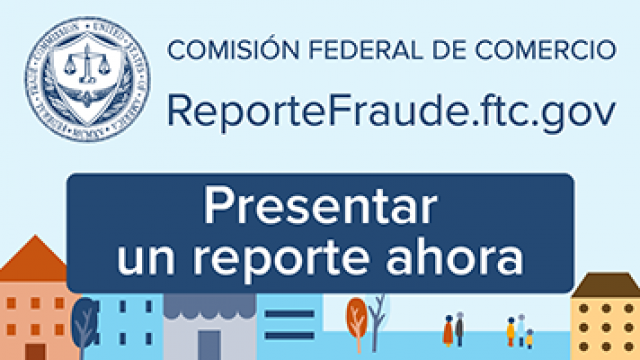Learn about the latest scams, and get advice to help you avoid, report, and recover from them.
Displaying 1 - 20 of 570
Consumer Alert
We recently shared advice to help you safeguard the personal information in your accounts, on your computer, and on your phone to protect it from identity theft. But scammers aren’t just after your data. They want your hard-earned cash, too. Here are some common scams to watch out for.
Consumer Alert
No one likes waiting in airport security lines. To speed things up, some people opt to get TSA PreCheck. Scammers know this and send emails that look like they're from TSA PreCheck — but they’re not. The emails want you to click a link that takes you to a scam website that only looks like the official site — but it’s not. If you pay to “enroll” or “renew” your TSA PreCheck, you may not even realize you’ve paid a scammer until you get to the airport for your next trip. But there are ways to spot these scams.
Consumer Alert
The federal government is once again offering free COVID test kits. When it opens in September, you can order up to four kits per household at COVIDTests.gov. All for free.
Consumer Alert
Nobody knows how long it’ll take to recover from the devastating flooding and destruction of Hurricane Helene. But we do know it won’t be long before scammers try to cash in on the storm. As you’re working to get back on your feet, learn how scammers operate — and how to avoid them.
Consumer Alert
Did a salesperson knock on your door and promise free rooftop solar panels at no cost to you? Or say you’ll never have to pay another electricity bill because government programs, grants, or rebates cover your solar installation? It’s likely a scam. While there are some government-funded solar programs for households that qualify, “going solar” isn’t free. Honest businesses will tell you exactly how much it’ll cost to get and install solar panels. Here’s how to steer clear of the scams.
Consumer Alert
There’s been a lot of hype and excitement about artificial intelligence and all the amazing things it can, or one day might, do. Some companies are developing and selling AI tools, while others are flaunting the benefits of incorporating it into their existing business models. And some businesses aren’t being truthful when it comes to AI.
Consumer Alert
What if you thought you’d agreed to a rent you could afford and then learned you had to pay an additional $1,740 in fees during your lease term? You’d probably feel deceived. That’s what the FTC says Invitation Homes did to its residents and people looking for housing. And that’s why Invitation Homes, one of the largest single-family home landlords in the country, will be refunding $48 million to residents and changing its practices.
Consumer Alert
Missing jury duty can come with real consequences. You could face a fine, go to court, or even get arrested. Scammers take advantage of that to get your money or sensitive information. But their story is a lie.
Consumer Alert
Imagine carrying a written copy of all your conversations with you everywhere you went. Or copies of your account numbers, usernames, and passwords. Or all the photos and videos you’ve ever taken. I bet you’d do just about everything in your power to protect all that valuable information. Well, your mobile phone holds all that stuff — and maybe more. Are you doing everything in your power to keep it from ending up in the wrong hands? Here are three things you can do today to protect the personal information on your phone.
Consumer Alert
Most of us use ATMs pretty often to withdraw cash. But Bitcoin ATMs (or BTMs) are a different beast. Increasingly located in convenience or grocery stores, gas stations, and other places, they’re a way to buy or send cryptocurrency. Only scammers are now using BTMs to steal your money. A new FTC Data Spotlight explains how people are losing millions to fraud at BTMs — and how to protect yourself and the people you care about.
Consumer Alert
With more powerful and frequent natural disasters — even affecting areas where they weren’t typical — you might have something like “update or make my emergency plan” on your to do list. The FTC has information and tools to help you avoid fraud as you prepare and recover from an emergency. And this National Preparedness Month we’re partnering with FEMA to bring you free webinars in English and Spanish with step-by-step guidance to get ready.
Consumer Alert
For college students and parents, paying tuition is often at the top of the to-do list each semester. Imagine getting a call from someone who supposedly works at your school, saying you haven’t paid the bill. They threaten to drop your classes unless you send money right away. The call might raise alarm bells, but slow down — you might end up paying a scammer instead of the real tuition and fees.
Consumer Alert
If you’ve seen ads for home title lock insurance, they might have you worried. After all, the ads say thieves can steal the title to your home. But then the ads tell you to buy title lock insurance to supposedly prevent home title theft. Stop. Take a breath. It’s just a ploy to scare you.
Consumer Alert
We’re living in the data age. The things we do on our phones and computers, on our internet-enabled smart devices, and on websites leave a trail of our activities and our personal information. That personal information has value — not just to us, but to scammers and hackers who want to steal our identities. Here are five things you can do to keep scammers and hackers at bay.
Consumer Alert
If you have federal student loans, you probably got an email last month from Secretary of Education Miguel Cardona. (The email address it showed was noreply@studentaid.gov.) It has important information about your options for loan forgiveness. While that email is legit, scammers spread fake information about your student loans to try to get money or information from you.
Consumer Alert
Getting an urgent call from what sounds like your utility company might make you think: Did I forget to pay my bill? The caller says there’s a way to avoid shutoff and fees: they’ll send you a barcode by text or email so you can pay at a local retailer like Walgreens, CVS, or Walmart. Don’t. It’s all a lie. Wondering how to know it’s not a real utility company calling?
Consumer Alert
When temperatures rise, utility costs do, too. While reputable companies can help you save money with clean or solar energy improvements, scammers offer more than they can deliver. The scams vary, but here’s the gist: someone claiming to be with the government or your utility company promises big savings on your utility bills from solar energy or other home improvements designed to increase energy efficiency. If you agree to the scammer’s offer, it could cost you tens of thousands of dollars.
Consumer Alert
You get a text message from a number you don’t know, asking when you’re free to catch up over a cup of coffee. Don’t perk up just yet. That invitation for a coffee date might sound like it’s from a friend you’ve lost touch with, but it’s probably just a scammer looking to start a conversation with you. Not sure how to respond? The short answer is: Don’t. Keep reading to find out why.
Consumer Alert
More than 25,000 people are getting a refund check from the FTC as a result of its settlement with the house flipping scheme Zurixx, LLC. [TCP1] If you’re one of them, please cash the check as soon as possible.
Consumer Alert
Military families move regularly, sometimes every two to three years. So you may find yourself checking out new digs as you plan a move to another duty station. That’s when you could run into a rental scam, which can be hard to spot, but here are some clues.



